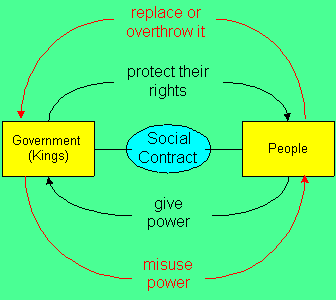The Revolutionary War
The French and Indian War
The British wanted to drive the French from North America
They needed to neutralize the advantage of the support that they had from the Native Americans
The French and the British gave generous gifts to the Native Americans attempting to woo them.
The Native Americans knew that their land was going to be at stake, so they tried to preserve the balance.
The British began to outnumber the French with more and more people trying to colonize America
The British treated the Native Americans harshly and the Natives did little to prevent the colonists from taking their land.
The French needed allies, so they treated the Natives with respect.
The outnumbered French worked with the Native Americans to resist British expansion.
Some Native Americans fought for the British, but most of them fought for the French.
The French and Indian war was fought in the Ohio River Valley
The Ohio River Valley was claimed by both the French and the British, but it was largely unsettled
The French built a fort in the valley and the British were angered.
When the original commander died , George Washington took over and defeated a small French force
Native Americans raided British frontier settlements
The British cut off French shipping to America and many Natives deserted the French in favor of the better supplied British.
Fighting continued in other parts of the world and the British won.
The fighting stopped when the Treaty of Paris of 1763 was created which stated that the French had to get out of America and all of the land that they had were then being given to the British.
Pontiac Rebellion
The conquest of Canada was dreadful for the Natives.
They could no longer make the British fight the French anymore
The British commander cut off supplies to the Natives
The British then took Native lands in western Pennsylvania and Virginia
The natives started to raid many British forts and settlements
They called it the Pontiac rebellion because an Ottawa chief named Pontiac organized an attack on Detroit.
The Natives wanted to weaken the British so the French would come back so they could retake the forts.
The Native Americans tried to have a rebellion, but they quickly ran out of supplies due to the fact that the British weren’t supplying them anymore in an attempt to quickly drive them away.
The new commander Thomas Gage recognized that respect for the natives would cost less than having a war with them.
Various native nations made peace in exchange for the British to restrain the settlers.
The British rebuilt their forts and they also tried to enforce the proclamation of 1763.
It ordered settlers to remain east of the Appalachian Mountains.
There were too little British troops to restrain the thousands.
It was clear that the boundaries set by the proclamation could not protect the natives.
It irritated the colonists who resented the efforts to limit their expansion.
The french and Indian war along with Pontiac’s Rebellion revealed the tensions between the British and their colonies.
The British thought that the colonies should help pay these costs.
Disagreement Among Colonists
- Disagreement between the colonies complicated the war effort and angered the British
- Colonial delegates met in 1754 to review the Albany Plan of Union drafted by Benjamin franklin
- The plan called the colonies to unite under British rule and cooperate with one another in war.
- However, none of the colonists would accept the plan for rear of losing some of their autonomy
- The British also dropped the plain in fear of creating greater unity which can cause them to be harder to manage.
- During the 1760s, the British imposed many laws and regulated colonial trade
Townsend Duties
Taxes
- The stamp act required the colonists to buy a royal stamp to validate legal documents
- Colonial protest changed from a gentry movement to a mass protest by common citizens
- Massachusetts called for a stamp act congress in New York to discuss the abominations that they have received.
- Protests against the tax led to Mob Riots and Boycotting British Goods
- The boycotts also mobilized women
- The sons of liberty were formed to protest British restrictions
- Women played a clear role in maintaining the success of boycotts
- Women sewed their clothes to maintain the boycotts so that they would not have to buy them.
In 1767, Parliament initiated the Townsend Duties (a series of indirect taxes that the colonists weren’t supposed to notice.)
It taxes things like paper, lead, glass, and tea.

Revolution
George Washington
- Commander in Chief
- Secures equipment and supplies
- Train recruits into professional military
- Strong Personality
- Respected by soldiers
- Not the most skilled commander
U.S. Strengths
- Familiarity of home ground
- Leadership of George Washington and officers like Marquis de Lafayette (French) and Baron von Steuben (Prussian)
- The colonists were all inspired because they all wanted independence.
U.S. Weaknesses
- Most of the soldiers were untrained.
- Most of the colonists were still loyal to the crown
- They had difficulties raising money for the war
George Washington needed a real standing army
Continental Army
- Serve 1-3 years
- Rations are short and mostly had to scavenge for food.
- There were many diseases such as dysentery and small-pox
Benjamin Franklin went to France to try and convince them to help the colonists fight against Britain.
Battle of Trenton December 25, 1776
- Hessians were sleeping and they crossed the Delaware in the cold
- The Americans/Colonists won, and it gave them confidence.
Battle of Saratoga October 7, 1777
- The British wanted to divide the New England colonies from the southern colonies
- The British sent General Burgoyne
- The Americans sent General H. Gates
- Bemis Heights helped